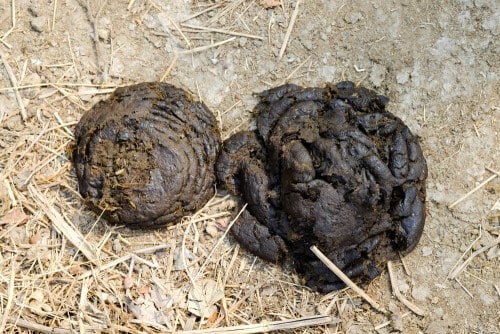Cow dung promotes antibiotic resistance even when it comes from drug-free cows

When antibiotics for the problem became available, farmers began to use them indiscriminately. They injected streptomycin into the feed of chickens to speed up their growth and gave it to pigs in low doses to make them fat. Today, scientists know that overuse of antibiotics in livestock cultivates drug-resistant bacteria that endanger human health. In the midst of the discussions regarding the restrictions that should be taken, scientists continue to be vigorously interested in the resistance mechanisms of bacteria and deciphering the pathways by which this resistance makes its way to humans.
Jo Handelsman follows such a migration route that she calls: "from the barn to the table". Handelsman is a microbiologist who now serves as director of scientific affairs in the Office of Science and Technology Policy at the White House. In the past, Handelsman examined dairy cows that farmers often provide antibiotics to. The farmers usually use these cows to fertilize the crops. In addition to nutrients, this odorous manure may carry antibiotic-resistant bacteria. This is serious because the bacteria may come into contact with plants that end up in supermarkets and some of them are eaten fresh, without cooking.
To understand how such bacteria were created, Handelsman and her colleagues at Yale University conducted a 2013 study in which they fertilized raised growing media with leaves collected from nearby farms in Connecticut. In the study, they used eggs taken from cows that were not treated with antibiotics. The researchers were surprised to find more bacteria with antibiotic resistance genes in the soil fertilized with cows than in the soil fertilized with a high-nitrogen synthetic fertilizer, even though the cows were drug-free. The team published their work in the October 2014 issue of the Proceedings of the National Academy of Sciences (PNAS).
Studies prior to this study showed that pig manure treated with antibiotics contained resistant bacteria, including Escherichia coli, but the results from the cow manure study suggest that other factors influence the development of resistance, and not just the administration of antibiotics to the animals. Something about the eggs themselves encourages the growth of resistant bacteria naturally found in them.
However, the findings do not indicate that resistance is ubiquitous, says Lance Price, a microbiologist at George Washington University (who was not involved in the study). According to him, widespread resistance is not inevitable. "We can control it. There is very clear evidence that turning off the antibiotic faucet greatly reduces the amount of resistant bacteria."
The experiment Handelsman is planning to test the barn-to-table hypothesis will test whether radishes grown in soil fertilized with cow feces can pick up genes for resistance through their transport tube system. "Radishes have 'veins' just like us," she says. "We still don't have proof that he picks up the bacteria from the soil, but this is a very interesting possibility."
The article was published with the permission of Scientific American Israel

4 תגובות
And why didn't the World Health Organization stop the farmers' manipulations?
Igal,
Not only did the governments not prevent, on the contrary, they encouraged. The trend was as little damage to agriculture as possible - more food for humans. And so the chickens and the cows and the bees were given an overdose of antibiotics out of a desire to prevent disease (they weren't even sick) and now everyone is crying.
Why didn't governments prevent the manipulation of farmers with antibiotics?
Excellent!!! Great idea, I will force my mother-in-law to adopt it for her diet!!!